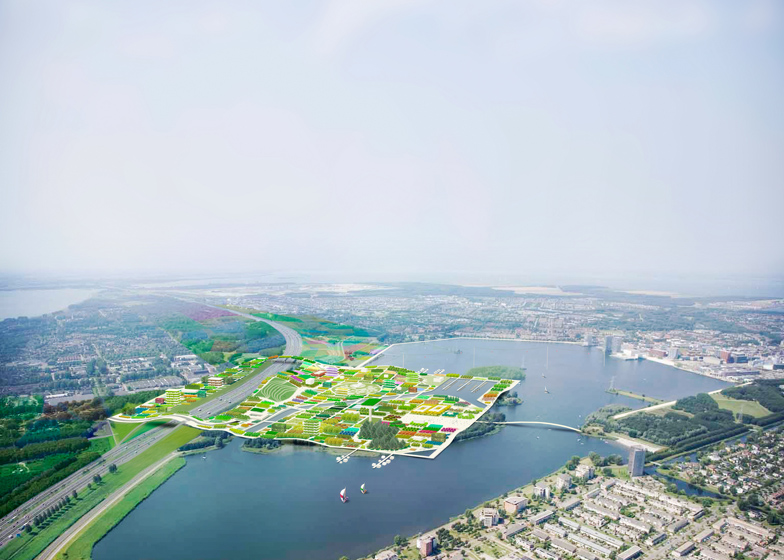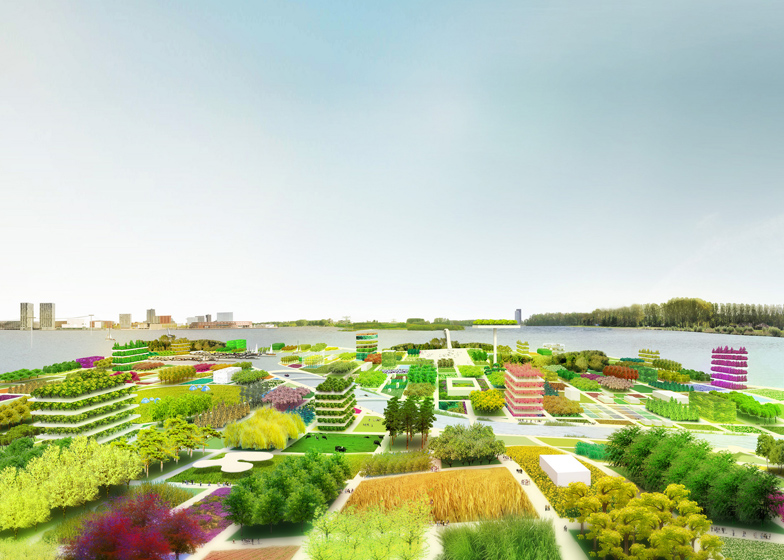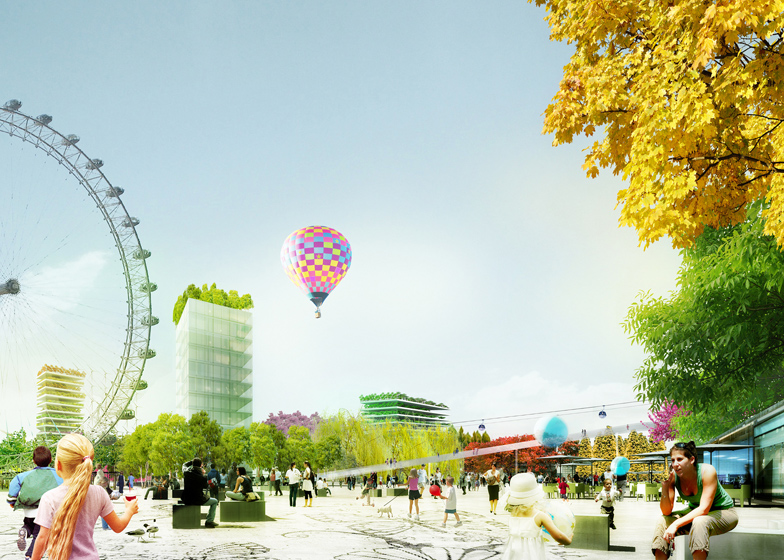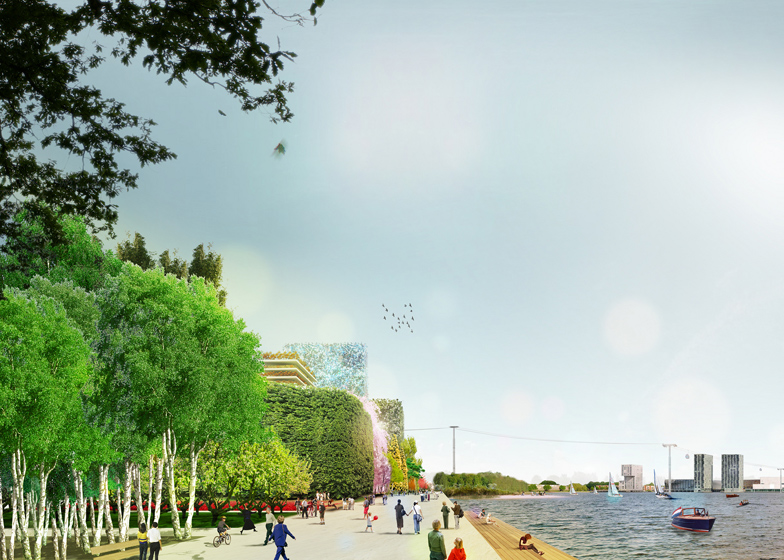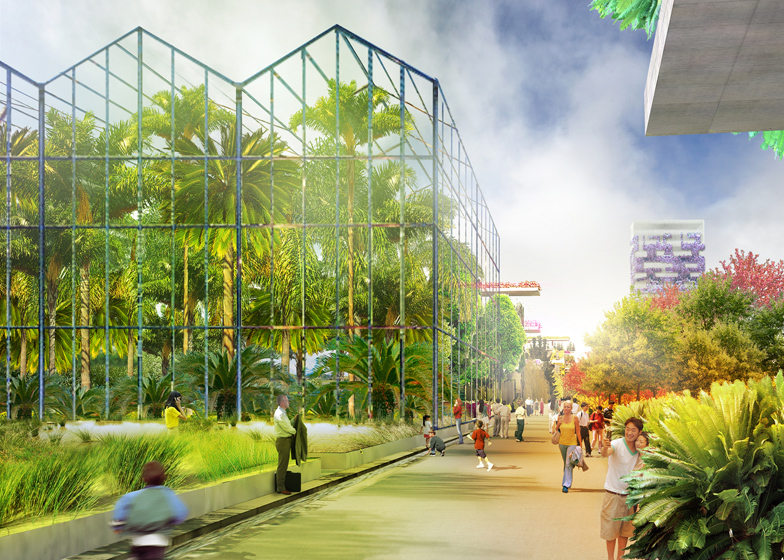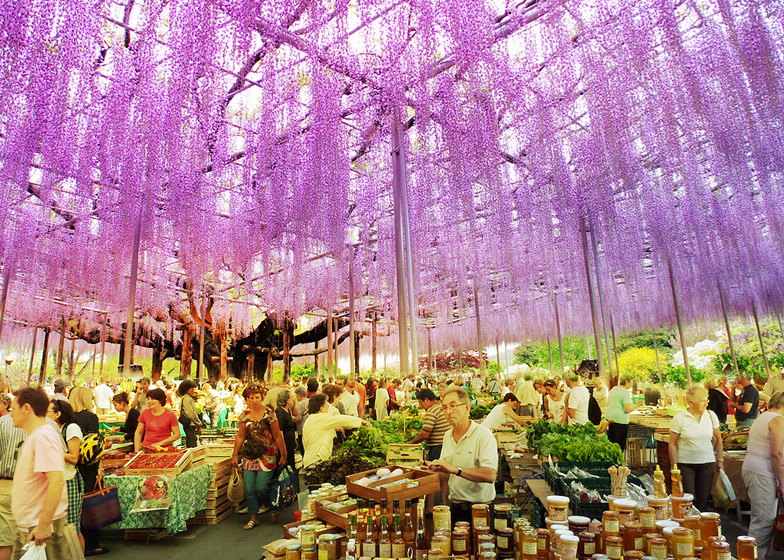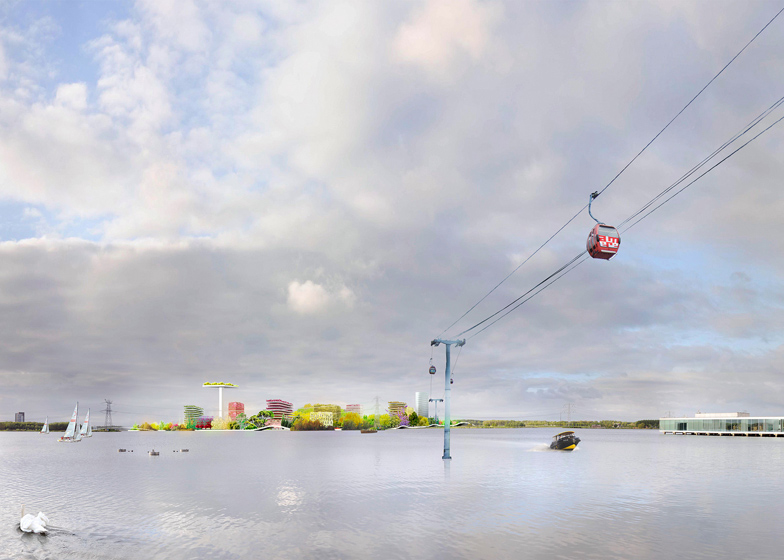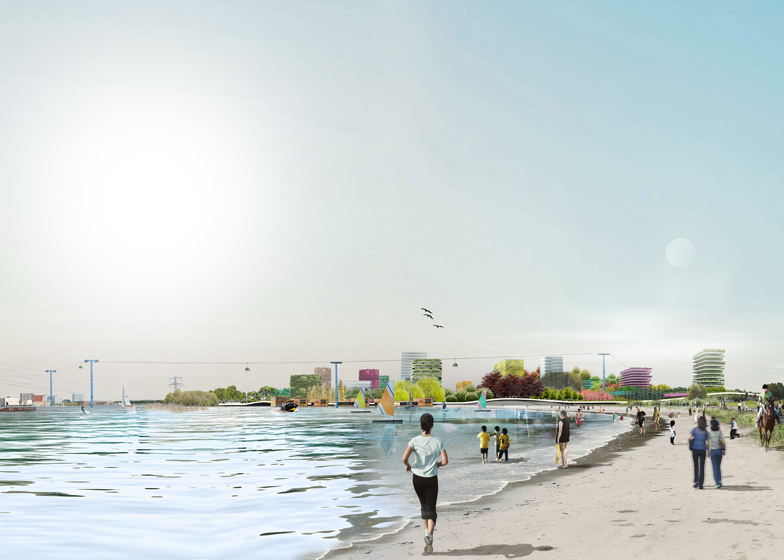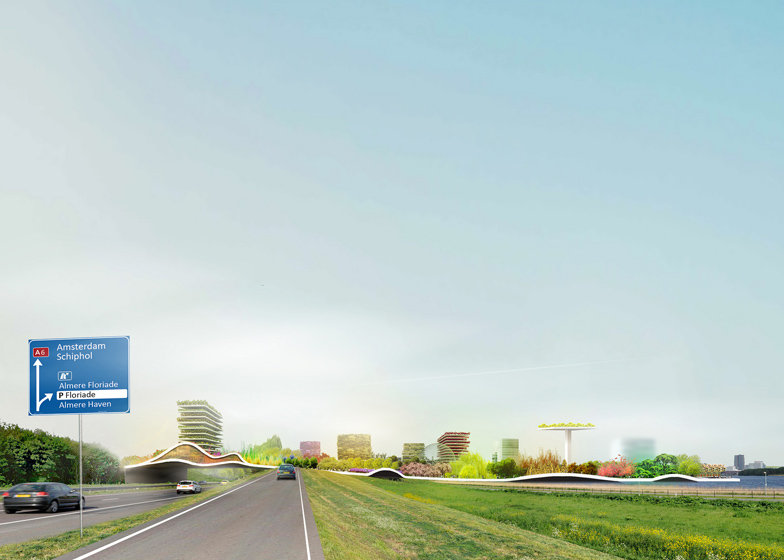Dutch architects MVRDV have proposed extending the city of Almere into a lake by building a square-shaped artificial peninsula covered in gardens (+ slideshow).
The 45 hectare extension is part of the Dutch city's bid to host the World Horticultural Expo in 2022 and would host the six-month festival as well as providing land to build a new university plus offices, homes and leisure facilities.
Designs for the exhibition comprise a patchwork of gardens that the architects have called a "plant library" as well as a series of pavilions and greenhouses.
Once the expo is over, the green development would provide a permanent addition to the fast-developing city that was first established in 1976 on the outskirts of Amsterdam.
“We dream of making green cities," says Winy Maas of MVRDV. "A city that is literally green as well as ecological. A city that produces food and energy, cleans its own water, recycles waste and holds a great biodiversity."
The winning candidate is expected to be announced in October.
MVRDV have come up with a series of design concept for Almere, including a series of artificial islands and a neighbourhood based on a string of beads.
Winy Maas also chatted to Dezeen about their UK house project Balancing Barn in an interview we filmed last year. Watch the movie »
See all our stories about MVRDV »
Here's some more information from MVRDV:
The City of Almere presents its plans for the Floriade 2022 candidature. Almere is one of the four Dutch cities left in the race for the prestigious horticultural Expo which takes place once every ten years in the Netherlands and is currently open in Venlo. The MVRDV plan for Almere is not a temporary expo site but a lasting green Cité Idéale as a green extension of the existing city centre. The waterfront site opposite the city centre will be developed as vibrant new urban neighbourhood and giant plant library which will remain after the expo. The ambition is to create a 300% greener exhibition than currently standard, both literally green and sustainable: each program on the site will be combined with plants which will create programmatic surprises, innovation and ecology. The site with a vast program such as a university, hotel, marina, offices and homes will at the same time be more urban than any other Floriade has been before, literally constructing the green city. The Nederlandse Tuinbouwraad (NTR) will decide in October which city will be organising the next Floriade in 2022.
Amsterdam’s metropolitan area stands at the verge of a large housing growth. With 60.000 new homes the city of Almere will realise the largest share of this new development. Almere has the ambition to combine the urban growth with improved quality for its citizens. MVRDV proposes the ‘green’ extension of Almere city centre opposite the existing centre, transforming the lake into a central lake and connecting the various neighbourhoods of the Dutch new town. The plan foresees a dense exemplary and green city centre extension which at the same time is very flexible: an invitation to the Floriade organiser NTR to develop the plan further.
Winy Maas discusses the plan: “We dream of making green cities. City that is literally green as well as ecological. A city that produces food and energy, cleans its own water, recycles waste and holds a great biodiversity. A city which might even be autarkic: A symbiotic world of people, plants and animals. Can this symbiosis between city and countryside offer essential argumentation to the global concerns regarding urbanisation and consumption? Can we realise in the next ten years an exemplary ‘green’ city which realises this synthesis? And could this city be the Floriade 2022?”
Almere Floriade will be developed as a tapestry of gardens on a 45ha square shaped peninsula. Each block will be devoted to different plants, a plant library with perhaps an alphabetical order. The blocks are also devoted to program, from pavilions to homes, offices and even a university which will be organised as a stacked botanical garden, a vertical eco-system in which each class room will have a different climate to grow certain plants. Visitors will be able to stay in a jasmine hotel, swim in a lily pond and dine in a rosary. The city will offer homes in orchards, offices with planted interiors and bamboo parks. The Expo and new city centre will be a place that produces food and energy, a green urban district which shows in great detail how plants enrich every aspect of daily life.
MVRDV earlier developed the Almere 2030 masterplan and the radical DIY urbanism plan for Almere Oosterwold, and has engaged in vast research concerning urban farming, urban density and many aspects of modern agriculture. In 2000, MVRDV realised the Netherlands pavilion at the Hanover World Expo. Almere is one of four remaining candidate cities besides Amsterdam, Groningen and Boscoop region. In October the winning scheme and city will be announced by the NTR.
Program (selection): 45ha city centre extension with panorama tower, green housing exhibition (22.000m2/115 homes) hotel (30.000m2), university (10.000m2), conference centre (12.000m2) various expo pavilions (25.000m2) smart green house (4.000m2), care home (3.000m2), childrens expo, marina, forest, open air theatre, camping and other facilities (25.000m2).

